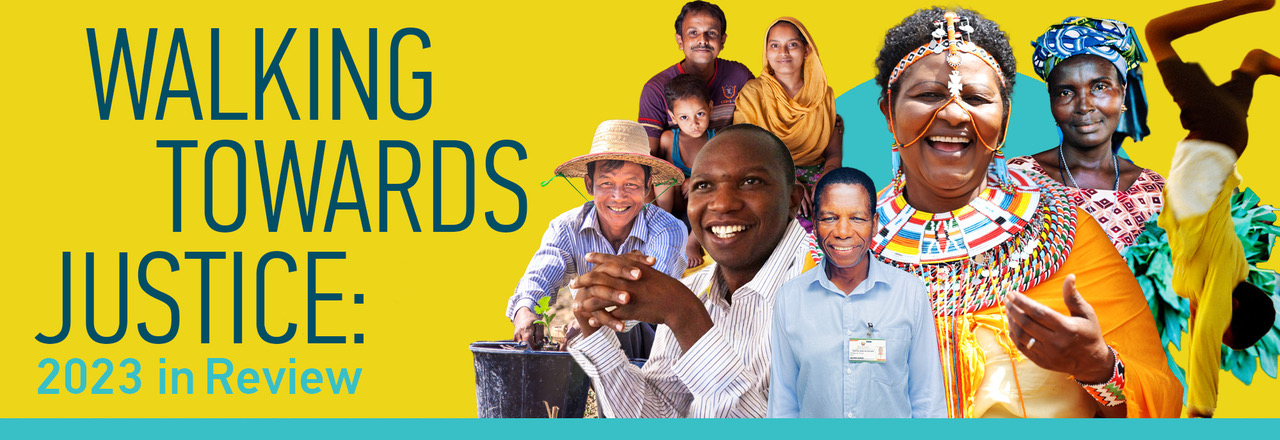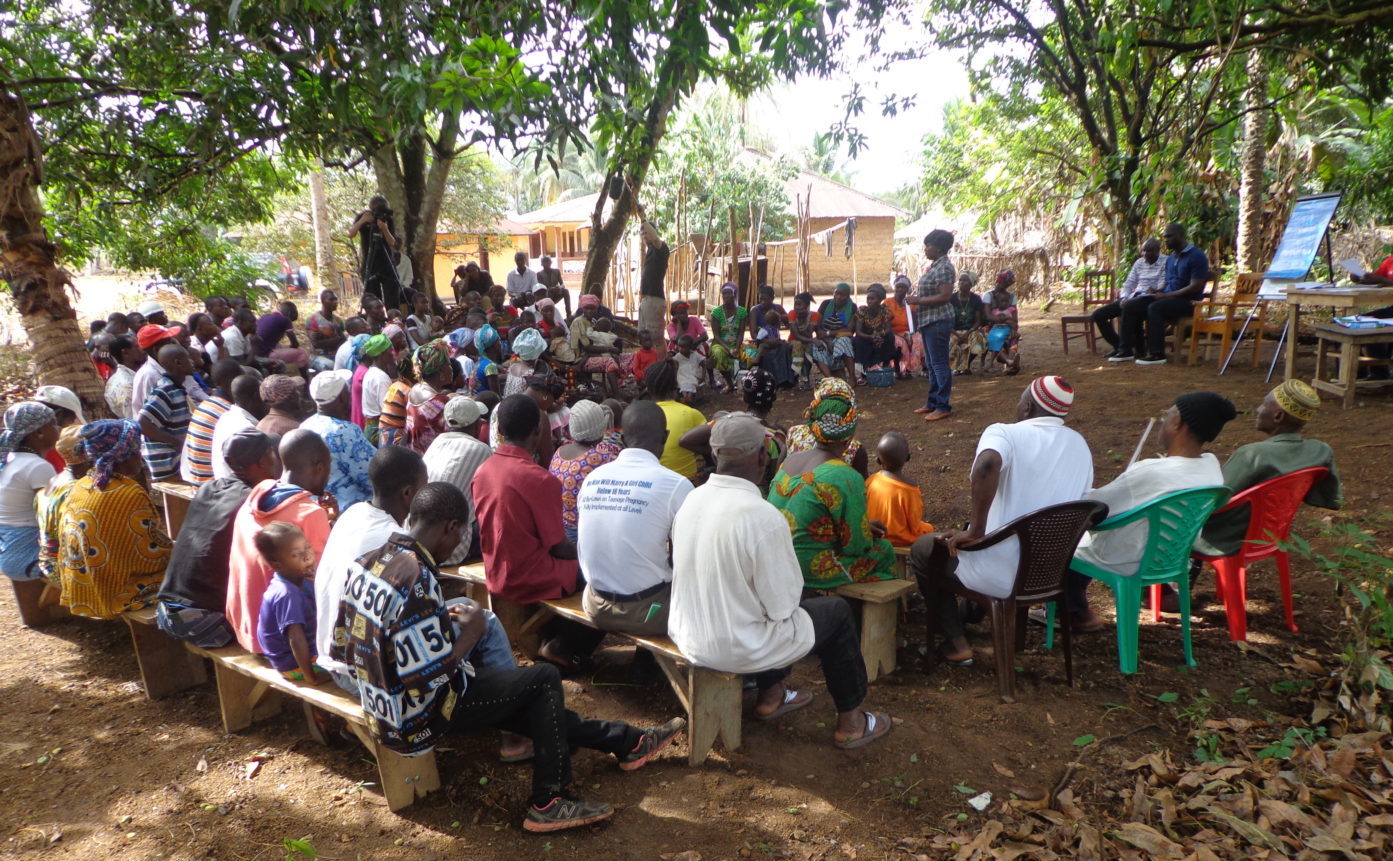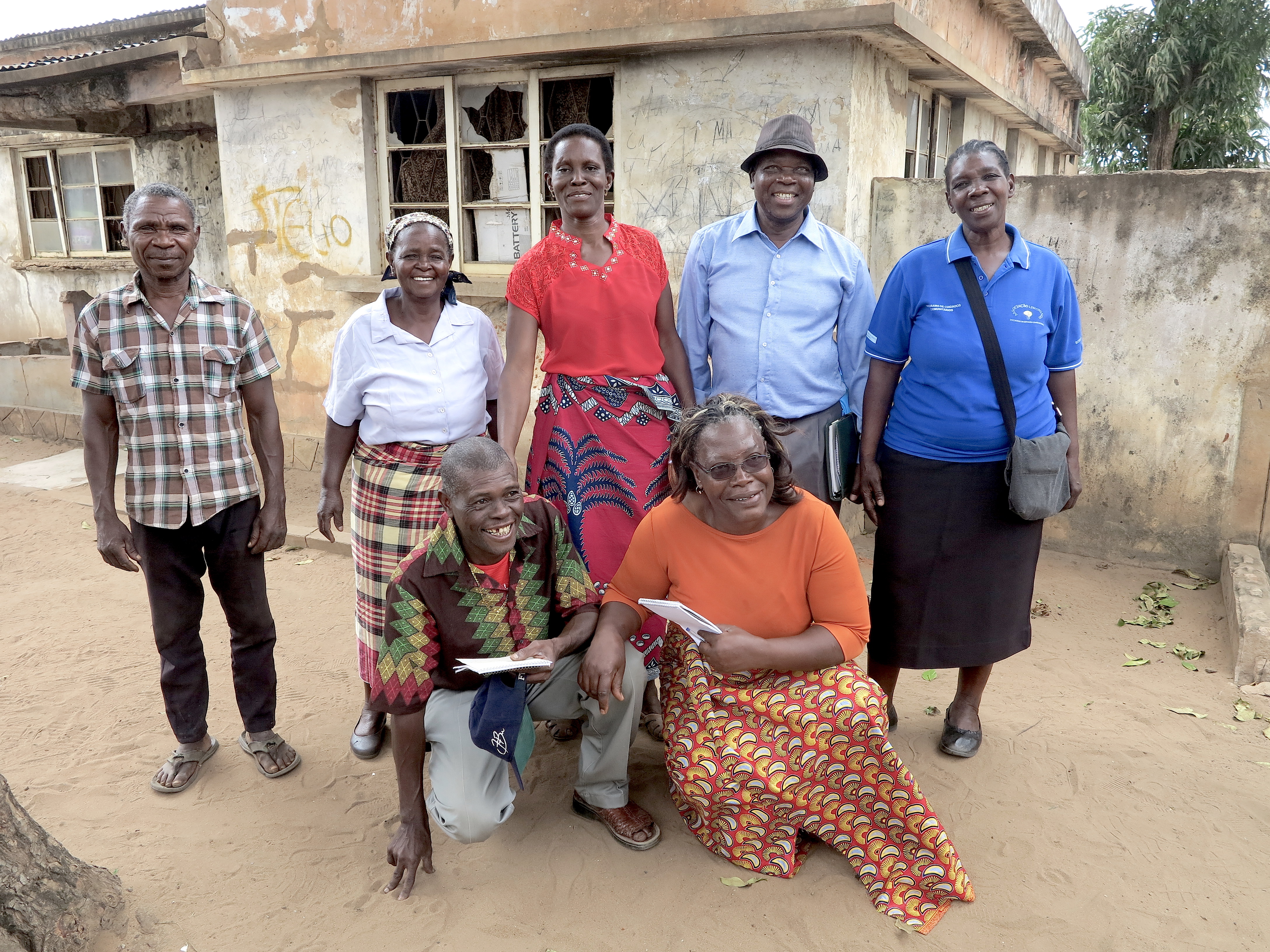Walking towards justice: 2023 in review


What can ordinary people do in the face of grave injustice? When the place you live is being destroyed by unlawful deforestation, or when your government is failing to provide essential services like healthcare, what can we do? Law, for all its flaws, for all the ways it’s often designed to repress, is one of the few tools we have to protect basic rights and constrain power. When ordinary people take law out of books and courtrooms, and combine it with the other key asset we have — our own people power — we can achieve concrete solutions to tough problems. Community paralegals — rooted organizers who can be a bridge between law and real life — make this possible.
In 2023, the community paralegals Namati and our partners support worked with over 75,000 people in six countries to pursue remedies to their lived problems and to make rules and systems better for everyone. The remedies communities achieved positively affected the lives and well-being of over 298,000 people. Armed with evidence and an understanding of their own power, communities have come together from across their specific struggles to pursue transformative changes in laws and systems — nationally and globally.

You will read about how members of 26 Indigenous communities, with the help of community paralegals, came together to demand transparency and a fairer deal from the world’s largest soil-based carbon project. You will read how paralegals and communities are breathing life into unprecedented land and climate laws in Sierra Leone, laws which were the direct result of legal empowerment efforts over the last decade. You’ll read how over 1,000 members of the Grassroots Justice Network – many of whom are community paralegals themselves – came together across borders to learn from one another and strengthen their practices.
Combining the power of law and the power of people is never easy. But it’s a path all of us can walk.
This report includes data from Oct 1, 2022 – September 30, 2023.

With the help of community paralegals, Mama Sofia, pictured, and her peers demanded a fairer deal from the world’s largest soil-based carbon project.
Kenya: Flexing Community Power in the World’s Largest Soil Carbon Project
Many governments, companies, and NGOs are developing projects to sell carbon credits: financial values assigned to the amount of greenhouse gas being kept or removed from the atmosphere. Lands where carbon credits are created often include the forests, grasslands, and coasts that local and Indigenous communities have stewarded for generations. Mama Sofia’s community is one of them.

 
Fatmata, a paralegal, works with members of Mashema.
Sierra Leone: Breathing Life into Unprecedented Land and Climate Laws
Positive reforms don’t implement themselves. They become reality when people use the new legal hooks to solve concrete problems and demand that the government does its part in implementation. Following the passage of unprecedented legislation in 2022 – a culmination of a decade of grassroots organizing – Namati and the communities we serve are working hard to breathe life into the new laws.

Watch Dover City Councilman Gerald Rocha describe how the federal funds they secured with Namati’s support could transform his community.
USA: Finding Hope and Advancing Equity through Climate Funding
In 2022, the United States passed legislation that directed historic amounts of funding to improve aging infrastructure and address key aspects of climate change. This, coupled with an unprecedented governmental focus on prioritizing areas most impacted by environmental destruction, created opportunities for impacted communities to lead the way out of the climate crisis. But local governments and overlooked communities continue to face steep barriers: not being aware of available resources, for instance, or struggling to navigate complex requirements and processes to access funding.
“I have learned a lot from the Lightening Course on Critical Consciousness and Empowerment. I am amazed at the similarities in our challenges which are cross-cutting. The amazing people have built capacity and solidarity in the communities. I gained a deeper understanding of systemic issues and strategies… I have gained a deeper understanding of systemic issues, the power of collaboration, solidarity, and unity.”
– Shilah Nasaazi, a program coordinator at FIDA-Uganda
Global: Strengthening the Global Movement of Grassroots Justice Defenders
This year, the Legal Empowerment Network adopted a new name – the Grassroots Justice Network. The name reflects Network members’ shared dream of making justice a reality for all, while honoring the communities whose experiences and leadership guide our work. With the updated brand, the Network experienced record membership growth last year.
As the largest community of justice defenders in the world, with members representing over 3,800 organizations in 175 countries, our goal is to build a united global movement that has the rigor and strength to meet the grave challenges we face.

“I first heard the word ‘[community] paralegal’ before, but after attending the Legal Empowerment [Leadership] Course, that is when I really understood what it means…It was very informative for me as an Indigenous Person to listen to others who experience similar situations, and listen to stories on how they have used the law to seek justice.”
Immaculata Casimero, Grassroots Justice Network member
Read how Immaculata and her team are using the community paralegal approach to make carbon projects more just.
Global: Learning and Acting Together to Build Just Carbon Markets
One of the priorities around which Network members and Namati country program teams mobilized is just carbon projects. Members came together to learn from one another and influence global change. For instance, during New York Climate Week, grassroots leaders from communities negatively impacted by carbon markets brought their stories directly to major carbon market influencers. Their discussion culminated in a set of minimum recommendations for carbon markets to ensure that communities are protected. At COP28, Network members – like Grace and Andrew – advocated fiercely for the rights and needs of impacted communities to be prioritized in land negotiations.

Rashid Juma Mohammed, Omar Osman Gitonga and Mariam Athuman narrate how they have struggled to secure a Kenyan national identification card due to ID vetting. Rashid, Osman, and Mariam’s plight impacts close to 5 million Kenyans who face significant barriers in accessing nationality documents because of ID vetting.
1 in 10 Kenyans go through a discriminatory vetting process when applying for an ID based only on their ethnicity or religion.
Kenya: Growing the National Movement to End Citizenship Discrimination
A key goal for the Namati Kenya team, community paralegals, and our coalition in 2023 was to increase awareness that discriminatory vetting in the issuance of essential ID documents is a challenge faced by millions of Kenyans – from the Nubian community in Kibra to the Swahili community on the coast. For the first time, we brought together members of different communities who are subjected to unconstitutional processes when applying for identity cards due to their ethnicity and religion. We used community forums and radio shows to highlight that exclusion is a systemic challenge. We worked with journalists and policymakers to spread the message. We continued our successful social media campaign (#MyIDMyRights), featuring stories of ordinary Kenyans who’ve been made to provide additional, unnecessary documents and subjected to interviews.

Members of a village health committee in Inhambane Province, Mozambique.
Standing, from left to right: community member, Catarina Simião, Maria Eugénia, Vitorino Januario, Fátima Pedro.
Kneeling, from left to right: Geronimo Rafael, Mariazinha António
Mozambique: Leading Nationwide Training on Patient-Centered Care
Countless initiatives to expand access to health care have focused on bringing services and medicines closer to communities. Yet, most have overlooked a critical truth: healthcare only works if it respects the rights and dignity of patients. In one study conducted in Mozambique, 42% of community members cited rights violations – such as lack of privacy, breaches of confidentiality, and poor treatment by health staff – as key reasons that HIV patients stopped taking their medication.
For over a decade, our health advocates have been working with community members and healthcare workers across the country to identify, address, and prevent patient grievances. Last year alone, we documented and resolved over 20,000 cases related to service-related barriers to care.

A paralegal works on this community forestry land that he was able to establish with 19 other community members.
Myanmar: Adapting and Persisting in a Challenging Environment
With courage and tenacity, our partners in Myanmar altered their focus and methods in 2023 so as to continue to advance justice despite a military dictatorship and widespread conflict. For example, paralegals have found some success in supporting communities to apply for community forestry certificates. Compared with other parts of the government, the forest department is more technocratic and less influenced by the military, and forest officials have continued to process community applications.
